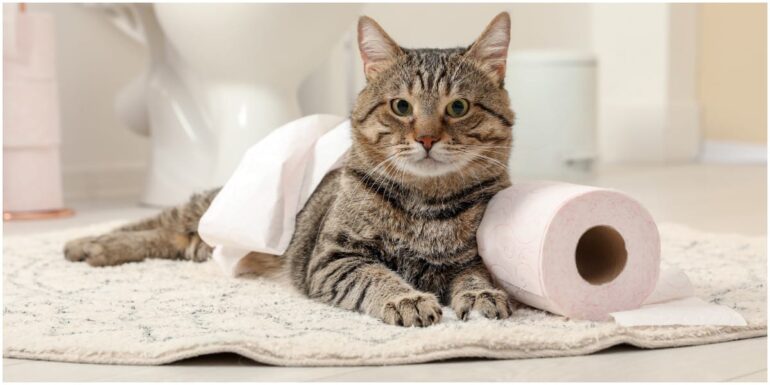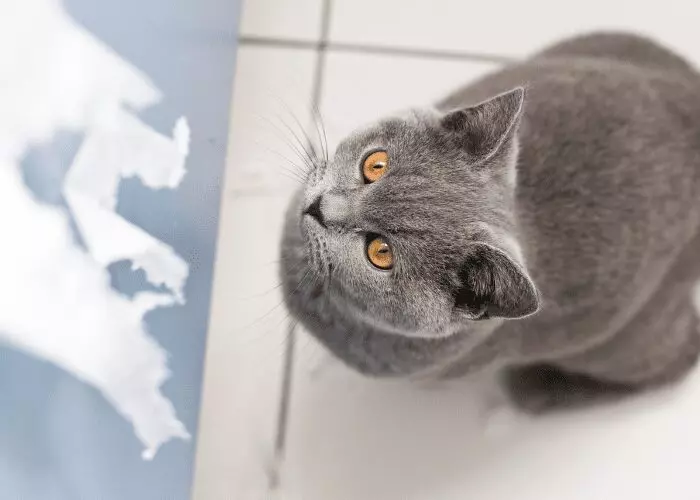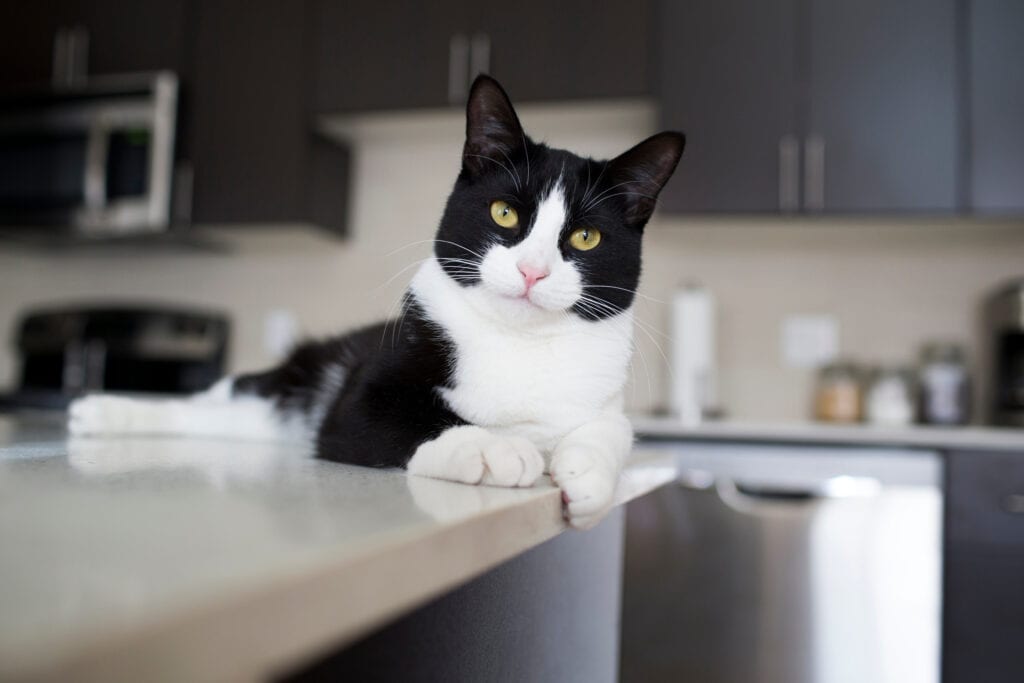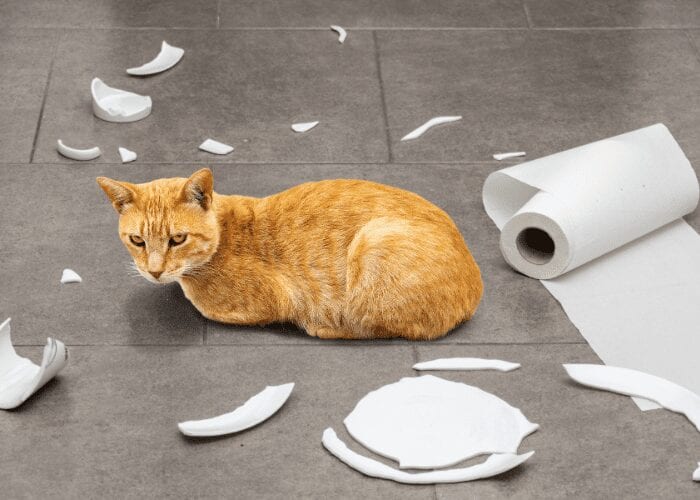Do you have a kitten or juvenile cat that is absolutely trying to destroy your house? Sometimes you think you actually brought home a 30lb Bull Mastiff puppy with the amount of damage your cat does? Tears up the toilet paper, hang from the curtains, helps themselves to whatever is on the countertops, and destroys the blinds. Sound familiar? Here is what it can mean and what you can do about it.
You mostly hear about kittens and juvenile cats acting out this way. Older kitties would most likely rather bask on the back of the couch soaking up some sunny rays. But kittens (anything under a year old) are almost a completely different species. These cats are not trying to be destructive, they are exploring their environment. And honestly, probably doing something to keep themselves busy, by getting themselves into trouble.
Cats need activity in their lives too! Here a few ideas to provide that stimulating enrichment:
- Cat Trees: These are great for cats! It is their own designated jungle gym instead of using the shower curtain holder in the bathroom. There are tons of different sizes and you can even do a DIY cat tree custom made for your feline friend.
- Toys: Toys are great for all pets. Don’t be afraid to through cat toys for your cat and play with them. When shopping for cat toys, stay away from ribbons and feathers. If your cat eats them, they can cause an obstruction in their gut.
- Walks: Harness train your cat and go for walks! Once they get the hang of leash walking, they’ll be begging to go along. This way you both can enjoy the outdoors and your cat is safe with you while doing so.
If you are worried about how destructive your cat is and jumps onto things they aren’t allowed to, train them to stay off. Yes, cats can be trained, too.
When you find your cat on the countertop, call them off and to you. When they do so, reward them with a treat. Using this reward is positive reinforcement.
You can also use a spray bottle with water to keep them off countertops and tables. Before spraying your cat, give them a heads up by calling their name and saying get down. If they don’t listen, spray near them. You do not have to actually spray your cat with the water to get them off the counter. Using this is called negative reinforcement. But, once they hear, “Fluffy get down!” it won’t take a water bottle for Fluffy to get off the countertops.
Using pheromones like Feliway can also help destructive behavior by helping keep your cat calm. Plug in a diffuser before you leave for work to help your cat stay calm and happy while you’re gone, and hopefully away from the new tablecloth. To find out more about Feliway, see my article on “Cat Pheromones” for more information.
If you have tried all of this and are still having problems with destructive behavior, it is a good idea to set up a behavioral consult with your veterinarian for further insight.
Keep in mind that most destructive behavior in cats happens during kittenhood, and it will pass. But there are ways that you can help make it easier on you and your house.






